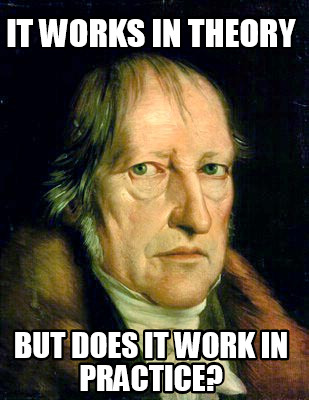Yes, earlier I was thinking common interpretations of religion tend to be the obstacle to most interesting research, because people want to say anything out of the ordinary is angelic or demonic instead of studying it. Well, even if it really were angelic or demonic, can't we be like Isaac Newton, Gottfried Leibniz, and the scholastics and study it anyway? But then we have the mainstream interpretation of Christianity which is that eating the apple of knowledge and being inquiring is the original sin of Adam and Eve, so the apple that fell on Isaac Newton's head must be Satanic too, even though I tend to think that's probably a complete misinterpretation of that story, they were supposed to eat the apple eventually, just later when God would give them the fruit of the tree of life too. So I tend to see that story as being about how knowledge without the ability to act on it (fruit of the tree of life) is hellish, not about how knowledge itself should be inherently forbidden.
Then you have people like Tolkien who seemed to completely revise the story so the original sin is idolatry like something from Islam instead of knowledge, though eating the fruit of knowledge when they couldn't have the fruit of life so they can live in accordance with what they knew can be seen as being, well, the fruit of idolatry, so those things maybe aren't mutually exclusive at all even if it isn't the common interpretation.
But yes, whenever you have an event out of the ordinary, do we usually get scientists in to study it? No, we don't even usually call James Randi and Penn and Teller in to try to debunk it, what we usually do is call in the Catholic Church or another religious organization in to verify whether or not there's been miraculous or demonic activity. All the parapsychologists, cryptozoologists, astrologers, alternative medicine practicioners, and other fringe scientists shouldn't be aiming their ire at the professional and amateur debunkers in the first place, they should be looking through the notes of Isaac Newton, Gottfriend Leibniz, and the scholastics and asking religions organizations respectful questions even if they don't believe in that particular religion or any religion at all themselves, because most people do believe in angels, demons, miracles, and magic even if they might not believe in remote viewing, Bigfoot, or aliens. It's probably less the case that remote viewing, Bigfoot, or aliens are considered definitely not to exist as that the real religious stuff is considered more important, such as what @
godslave mentioned a while ago how if you talk to people about God they might be more willing to consider God created aliens than if you talk to people about aliens first then they won't consider a God, despite all the people who think we definitely live in a simulation.
I'm not even really trying to argue for God here, but if you can believe we definitely live in a simulation or other Scientology-like ideas, the idea of forms of religion that include scientific ideas and paranormal science fiction type ideas seems a lot more credible to me too.
I think the real issue, however, is mostly pure pride. When people see something really good or really evil people want to feel like they completely understand it because of their pride, not because of some sense of taboo derived from religion. People have causes for believing in religion, religion itself is not the cause. That's why you can see mainstream Christian-like thinking, "otherworldliness," and "slave morality" even among most self-proclaimed enemies of Christianity while a handful of Christians and other similar religious people who just believe the metaphysical claims about God aren't afraid of reading atheist thinkers such as Nietzsche, Marx, or Freud and even accepting some of their points (not trying to argue for Nietzsche, Marx, and Freud as a whole, by the way.) People don't want to understand things because they think they already know enough, in which case, people need to have it demonstrated to them that they don't, and to have the fear of the unknown put back into them, because fear isn't always a bad thing or there wouldn't be phrases like "God-fearing" or people who are attracted to scary things like the horror genre.



 Reply With Quote
Reply With Quote



